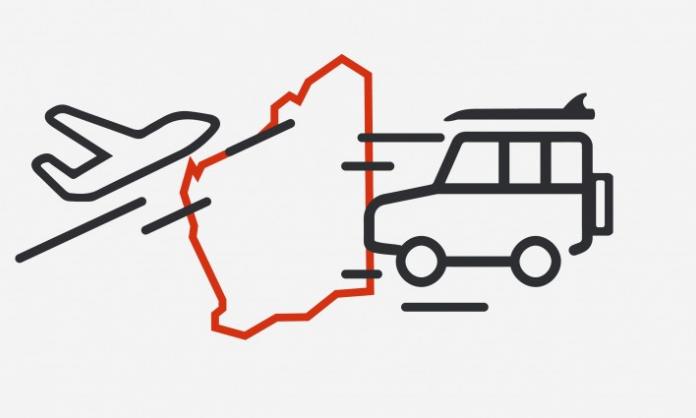The contrast couldn’t be starker. The “let it rip” strategy imposed on most of Australia during the Omicron wave has led to mass sickness, growing numbers of daily deaths, overrun hospitals and supply chain chaos. Meanwhile, in Western Australia, the risk of contracting COVID-19 is negligible. While community transmission has become more of a concern recently, daily new cases remain in single-digit territory.
The uncompromising stance of Premier Mark McGowan has been an important factor in keeping Western Australia relatively virus free. His approach has won widespread support, as shown by the ALP’s historic victory in last year’s state election, which almost completely wiped out the Liberals.
The most important measure the government has imposed is the hard border, which has prevented free travel into the state since 2020. On top of strict entry requirements for all travellers, people arriving from areas of significant community transmission have been subject to even tighter restrictions. Throughout the current surge, state after state has been reclassified in this way, to the point that entry into Western Australia from anywhere in the country—or indeed the world—is nearly impossible. This is essential to prevent the suffering and death occurring elsewhere spreading here.
Yet McGowan has made the almost unfathomable decision to open the state borders on 5 February, refusing to back down even in the face of the Omicron surge. It’s like living through the film Don’t Look Up, watching as a COVID-19 meteor comes hurtling towards us while the government refuses to stop it.
What is motivating him? In short: business profits. Over the last two years, McGowan has worked side by side with the mining industry, WA’s most profitable sector, which has benefited from the ease of movement for FIFO workers within the state. But the Chamber of Minerals now supports the reopening to make up for labour shortages.
And pressure from other sectors has been mounting. The state’s tourism industry has been gunning for the borders to reopen, Flight Centre CEO Graham Turner even threatening to sue the government. The agricultural and hospitality industries have complained about a severe worker shortage as they struggle to find migrant workers to exploit. The university bosses likewise miss their cash cow international students and want to bring them back.
Western Australian Chamber of Commerce and Industry CEO Chris Roswell couldn’t provide a clearer expression of the priorities of the system: “Clarity and certainty on 5 February has been critical to enable businesses to plan their operations and investments, and to ease costly pressure [such as] skills shortages, lost bookings and competitive disadvantage”.
In response, McGowan has joined the other Labor state premiers in capitulating to the idea that we need to learn to “live” with the virus. The premier continues to claim that he is better than the “let it rip” brigade, laying out a plan for a “soft landing” with measures such as mask requirements, vaccine passports and a double-dose vaccination rate of 90 percent. But there is no guarantee that these will be enough to prevent a surge in cases and the stress on the hospital system that is happening in the rest of the country.
For one thing, it has become clear that high vaccination rates aren’t enough to combat Omicron. Then there is the glaring issue of children aged 5 to 11 having been eligible for the vaccine only since 10 January. Not enough kids will be fully vaccinated, not to mention under-5s, who remain unvaccinated, or that vaccination rates continue to be dangerously low in most northern Aboriginal communities.
Immune-compromised people will also be at risk as the virus spreads. A petition against the border reopening is littered with comments from vulnerable people who feel that they are being thrown to the wolves. “My daughter is immune-compromised, I’m a brain cancer patient ... Our lives matter too”, reads one.
Then there is the atrocious condition of the state’s hospital system. According to a report by St John WA, Western Australia last year recorded its worst hospital ramping figures in history—around 52,000 hours, five times higher than when the McGowan government took office in 2017. Overcrowding in hospitals was so bad that, in the twelve months to June, 490 “code yellows” were reported, meaning a hospital is close to running out of available beds.
It is no surprise that, according to a recent Australian Nursing Federation survey, seven in ten nurses want the border reopening postponed and believe the hospitals won’t be able to cope with an Omicron outbreak. The union’s state Secretary Mark Olson has now called on the government to delay the border reopening by at least a month.
Anxiety is growing among the general population as well. A petition against the border reopening has gained more than 24,000 signatures. An Utting Research survey found that 53 percent of Western Australians were in favour of delaying the reopening date, with only 35 percent supporting the opening and 12 percent undecided.
Yet McGowan remains committed to the 5 February reopening. Hoping the government will do the right thing is not enough. Petition signatures are an important measure of public sentiment, but alone they are not enough either. There needs to be a fight to put public health first. Hitting the streets is a step in that direction.
Health Before Profits has called a protest against the border reopening on 22 January, 12 noon at Yagan Square. Sign the petition against the border reopening.








